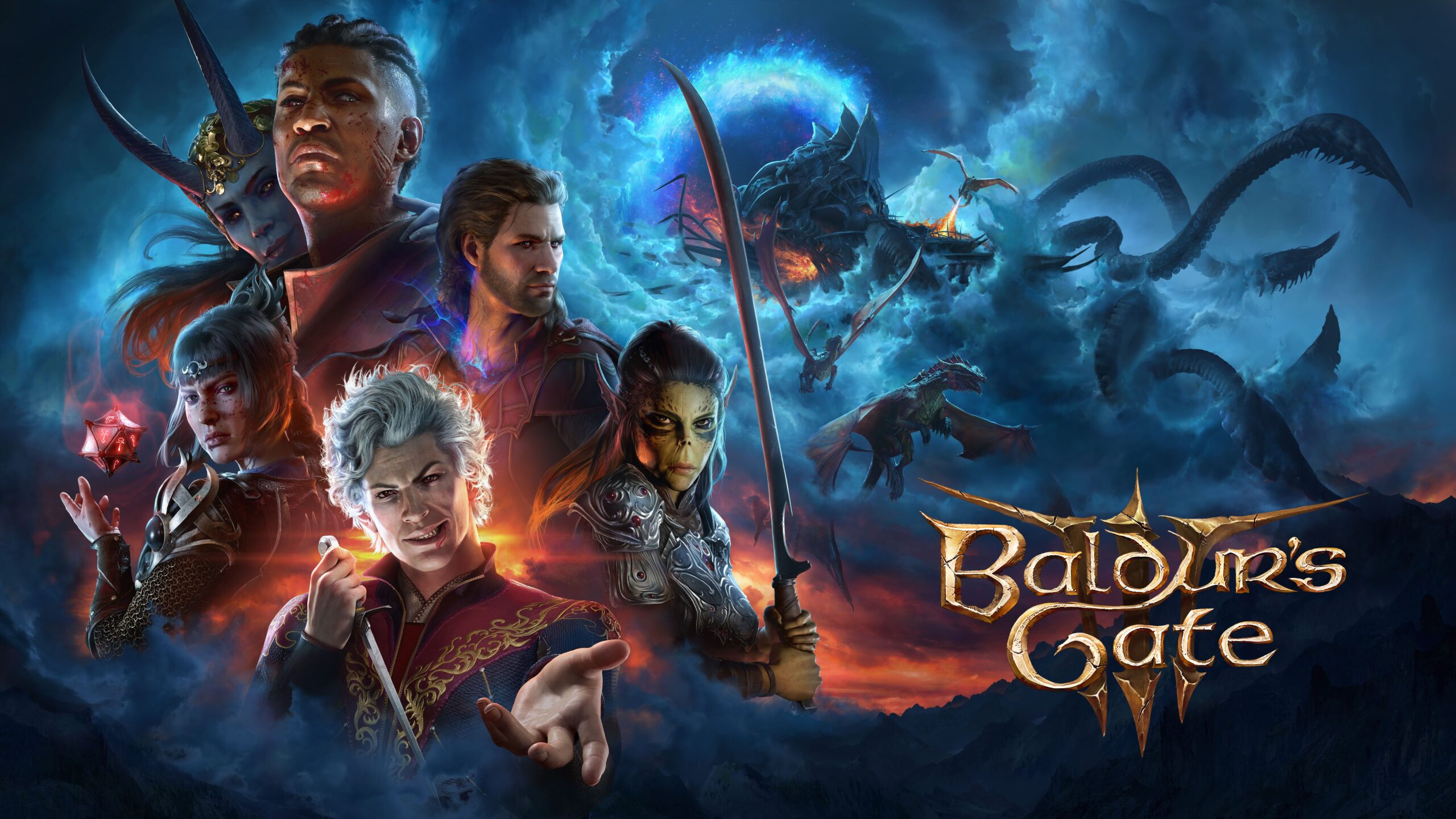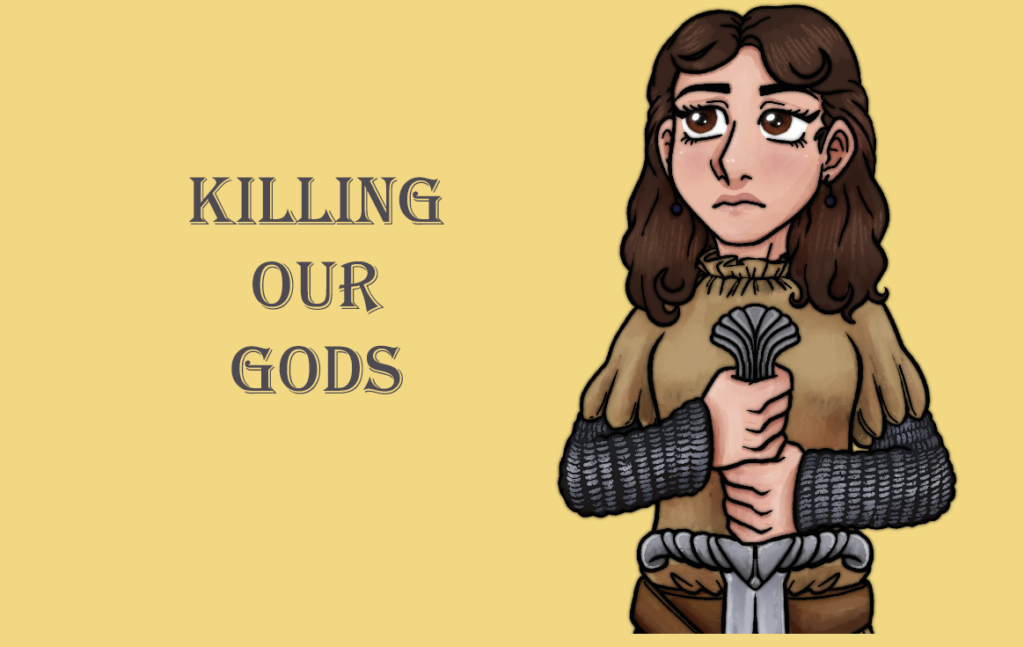
Your Will Be Done: Religious Authority and Queer Existence in Kingdom Hearts: Birth By Sleep
Killing Our Gods is a monthly column from Grace Benfell about Christianity, religion, and role-playing through a queer, Marxist, and lapsed Mormon lens.
“There are no homosexual members of the church” said David A. Bednar, an apostle of the Church of Jesus Christ of Latter Day Saints in 2016. The true meaning of his words was both more and less insidious than it appears. Not that there are no people attracted to the same sex in Mormonism – a reductive definition of queerness that is nevertheless the most often deployed in the church – but that it doesn’t define them. When they center Christ and their duties, they will become simply a member of the church, a Mormon.
This can seem like a comfort. The body of Christ, after all, requires diverse members: Hands, eyes, legs, and arms. They are all distinct but connected parts of a whole. In practice, though, conformity is deeply valued. Clergy and members alike follow strict dress and behavioral codes; wearing something other than a suit or a dress to church can be seen as a sign of disrespect. There is little room for alternate modes of gender presentation, and even less for non-binary people. This is only the surface, hiding an iceberg of violent suppression of queerness. Being queer in this environment can feel like a being a tumor; it seems your only options are to vanish, assimilate, or cut yourself out.
Strangely enough, Kingdom Hearts often resonates here, if by accident. The series depicts people clashing and working with the systems that surround them. It paints these conflicts in broad, spiritually tinged strokes. Sora and Riku are characters with special abilities to protect the world from world-consuming darkness. Yet, they struggle with their own darkness, with the way it mirrors and maps onto them, and how it threatens their sense of self. Nearly every protagonist in Kingdom Hearts resembles a faithful child, whose simple belief comes into conflict with the complexity of a wider world. As Kingdom Hearts protagonists confront others, they find themselves. Sub-textually, they move out of the closet. Nothing showcases this like Terra’s story in Birth by Sleep.
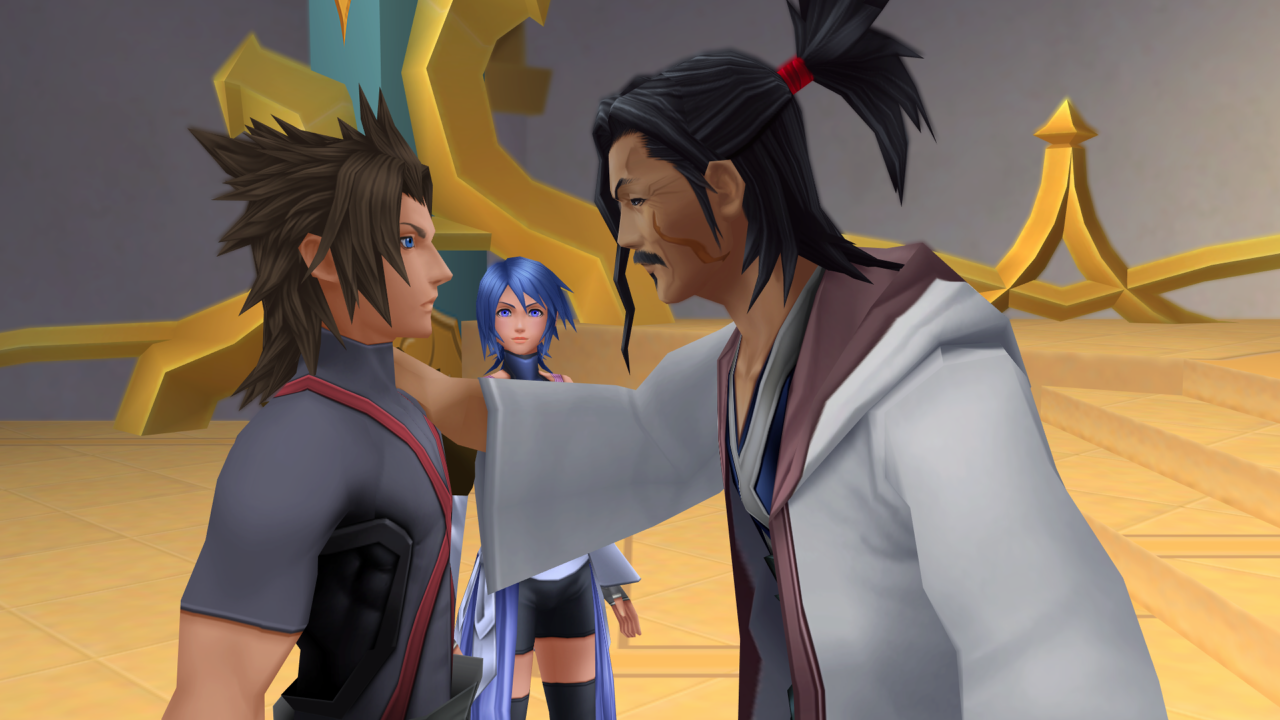
A prequel to the previously released games, Birth by Sleep takes place when the guardians of the many worlds, the Keyblade masters, still had some power. Though the organization of the Keyblade masters is textually closer to an intergalactic police corps, it resembles a convent, a monastery, or even a mission. Protagonists Terra, Ventus, and Aqua all live in a world apart. They dorm together. They learn the ways of their ancient order from a master, Eraqus, who blurs the line between father and teacher. They are guardians of light, sent out into the world to defend it from growing darkness. Their organization echoes traditional religious structure, which often forms social groups based on mutual responsibilities and religious rhetoric, which often positions its clergy as bastions against the evil of the world. Aqua, Terra, and Ventus are friends because they share a social situation, but also because they share the same ideological hopes and dreams. It is a kind of shared faith, similar to that of many religious youth.
From the start their future role takes over their current selves. We don’t get a glimpse of Terra’s life before. Who was he before he was a Keyblade wielder? Who were his parents? What world was he from? None of it matters in the face of the role he will take on and the ways he fails to embody that role. Similarly, Christianity promises a self and a life beyond the current moment, a soul and a virtue that will outlast our frail bodies. In Mormonism’s case, heterosexual marriage will continue into eternity, the family bound together forever. But the other side of this carries some menace. The Christian folk song refrain of “will you join them in their bliss?” promises a future life, with loved ones and joyful reunions. But only for those who live up to their responsibilities.
To this end, Terra has a problem. His heart is tinged with darkness. The dark itself is at best a mixed metaphor. It is both cosmic force and personal moral action. It is the incarnation of hate and rage, the potential for evil that lies within all beings, but it is also an essential part of self, it textually resides in every heart. The true inciting incident of Birth by Sleep is the villainous Xehanort ripping the natural darkness from Ventus. This event is traumatic, abusive, and has consequences that ring through the rest of the series. Darkness is a part of someone and cannot be removed lightly. For Terra, it is almost a natural part of him. One that can be abused and manipulated sure, but not something he can easily live without.
After an introduction, the game opens on a final test for Terra and Aqua before they enter into their new role as keyblade masters. It’s a ceremony of induction into a sacred order, but also a test. Terra and Aqua fight each other. It’s not competitive, but rather a fight of spirit, to show their mettle. Terra accidentally indulges his dark power, before snuffing it out. Eraqus observes and declares Aqua ready, but not Terra. The darkness tempts him too much.
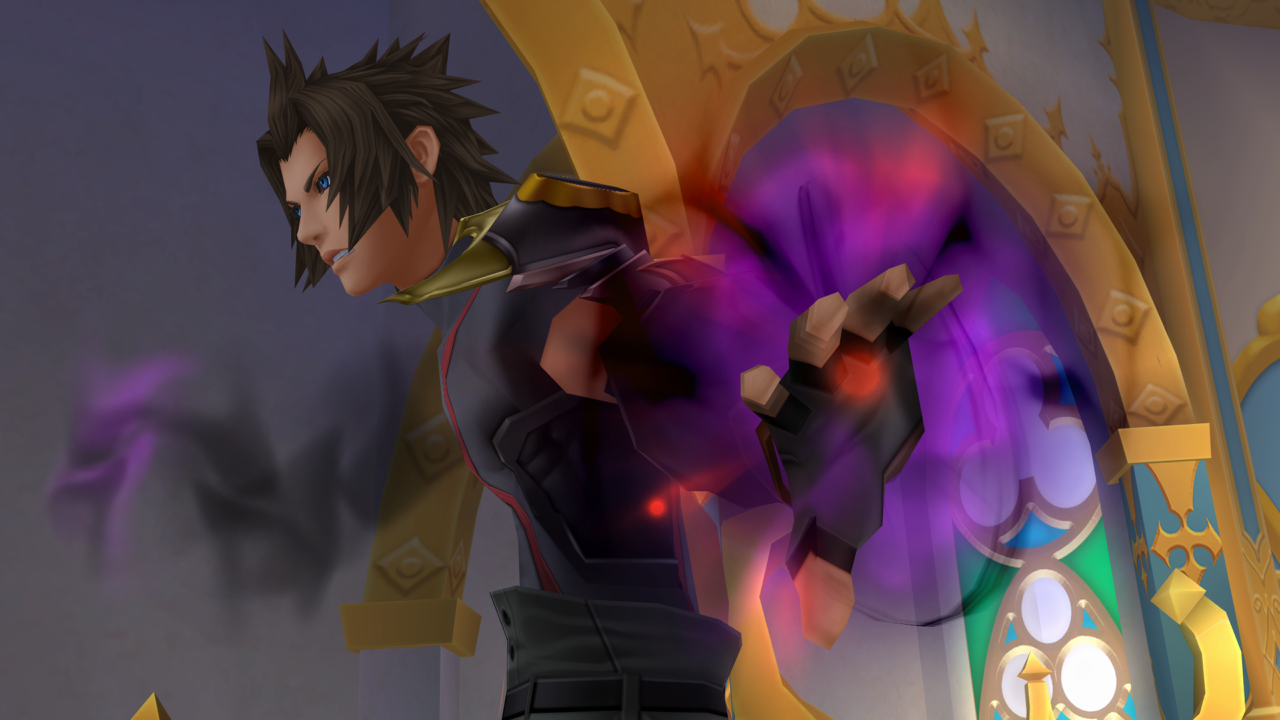
Eraqus resembles many stories about parents I heard about or parents I knew. Someone who might genuinely love their child, but doesn’t know what they need or how to relate to them. “I care for you like my own son,” Eraqus says, but does not so much as embrace Terra. Despite Eraqus’s words here, he also sees Terra as monstrous and wrong. During his test, Terra did not actually use his powers, but indulged for a moment. In that second, Eraqus’ attitude toward him changes. “[The darkness in him] runs very deep,” he tells Aqua later, instructing her to keep an eye on him. While such a command can seem reasonable, it is impossible for it not to carry dread. Especially given the ways queer people are surveilled in religious communities. What, for example, would happen to Terra if he were to succumb to darkness?
This conflict comes to a head when Ventus discovers his true nature, split between light and darkness, and Xehanort’s plan to transform him into a kind of spiritual superweapon. To drive it home, Ventus learns that Eraqus keeps him contained out of dehumanizing fear, not real concern. When Ventus confronts him, Eraqus responds by raising his blade. Terra rescues Ventus, challenging his adopted parent for wanting to kill a child, one Terra sees as his brother. Shedding only a single tear, Eraqus attempts to murder his children because of the evil he imagines they might become, because they are broken. It is one of the darkest moments in Kingdom Hearts, one that echoes the way queer lives are treated by many families.
Few parents would go as far as Eraqus, but many disown, abandon, emotionally or physically abuse their children. The continued existence of homophobia and transphobia within christian communities ensures that this will keep happening. The price of “purity” is death for the impure. Even those who stay become more symbols than people. They are examples that one can be “mormon and gay.” Their nuance stripped out, until they are talked of as tools. Without a selfhood that is their own, there is no place for queer people. Most Christian institutions simply make no room.
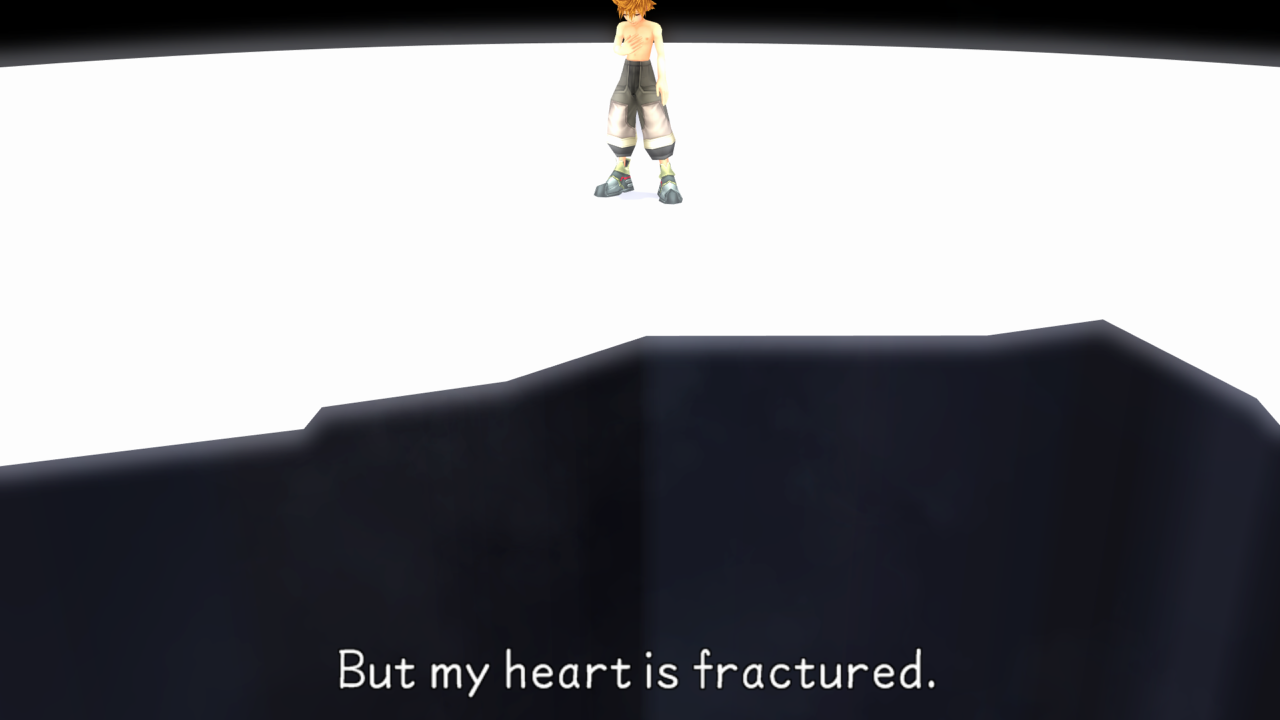
It took me many years to recognize this. A while ago, long before he made that dehumanizing statement, David Bednar came and spoke to a group of Mormons, myself among them. At the time, I felt frail and alone, unable to do the work I needed to do. It felt as if he spoke right into me, though I asked him no questions. Now, it feels more like he was speaking to my shadow, my “darkness” while the woman I was, who did not yet know how to speak, shouted for relief.
The reality is likely that he spoke to both myself and my shadow. Eraqus does repent of his choices, just before Xehanort, manipulating Terra from behind the scenes, deals the final blow. When Terra confronts Xehanort for the last time, he calls Eraqus “Father.” He is both the man who tried to kill him for his impurity and the one who loved him despite it. It is heartbreaking to see Terra be so fiercely loyal after all that has been done to him. After a life lived in the shadow of a massive institution, it is difficult to believe that you can live or love beyond it. Whether you leave organized religion or not, it can grip your imagination, hold you in stasis, until you feel there is no way out. What good there was lingers over you, until you feel cannot move away with jeopardizing your soul.
This is Birth by Sleep’s biggest problem: there is nothing beyond Eraqus or Xehanort. Eraqus stands with light and Xehanort with darkness. All of Birth by Sleep’s principle characters fall alongside one or the other, and the future for them is more of the same. There’s a reason this prequel starts with another trio of friends together, before they get split apart, a destiny faded for every generation of the series. While each of Kingdom Hearts’ characters resembles broken, once faithful youth, they are still chosen to be loyal soldiers. This doubt is just for a moment, it will pass. In future entries, these conflicts will boil down to two un-nuanced, unbroken sides.
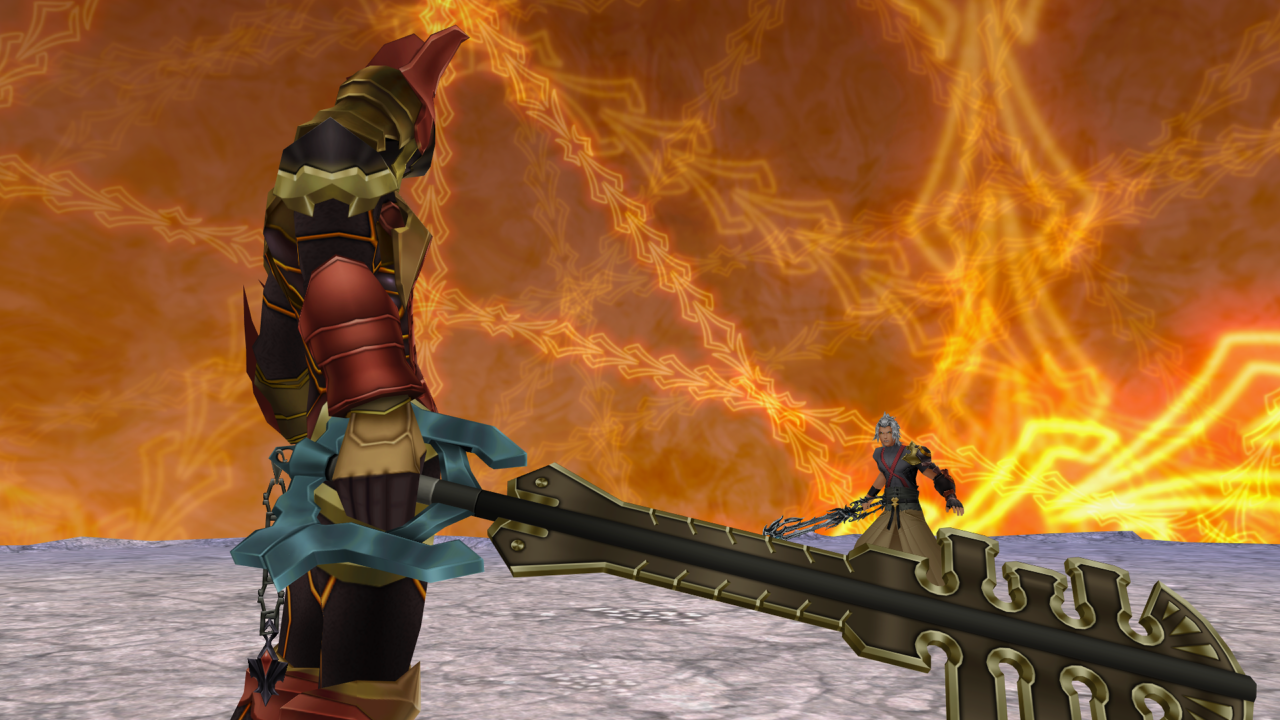
However, in one of the series’ most inspired moments, Terra asserts a radical selfhood. At the end of his story, Xehanort succeeds in taking Terra’s body. He strips him of his armor and begins to walk away. But the armor gets back up and raises a blade. After all the ways his leaders abused and possessed, took and controlled, Terra stands and fights. Though part of him submits, he still remains, he fights Xehanort and wins. When Terra’s will lingers, it shows a way forward beyond the false choices given by corrupt leaders.
Kingdom Hearts is an inaccurate map to lay over this kind of queer experience. I am making a leap by seeing Keyblade Masters as a religious order and Terra and Ventus as queer youth moving within it. However, its lines and images still lead me to some truth. Or at least something I want to be true. Terra might be trapped for now, but he will be free, and he will free his friends. Everyday I make the same promise to other queer people. Religious or not, faithful or not, I believe we can freely be ourselves, that our wills will linger beyond what confines. Out of shattered parts, we will build our bodies anew, stand, and fight.





